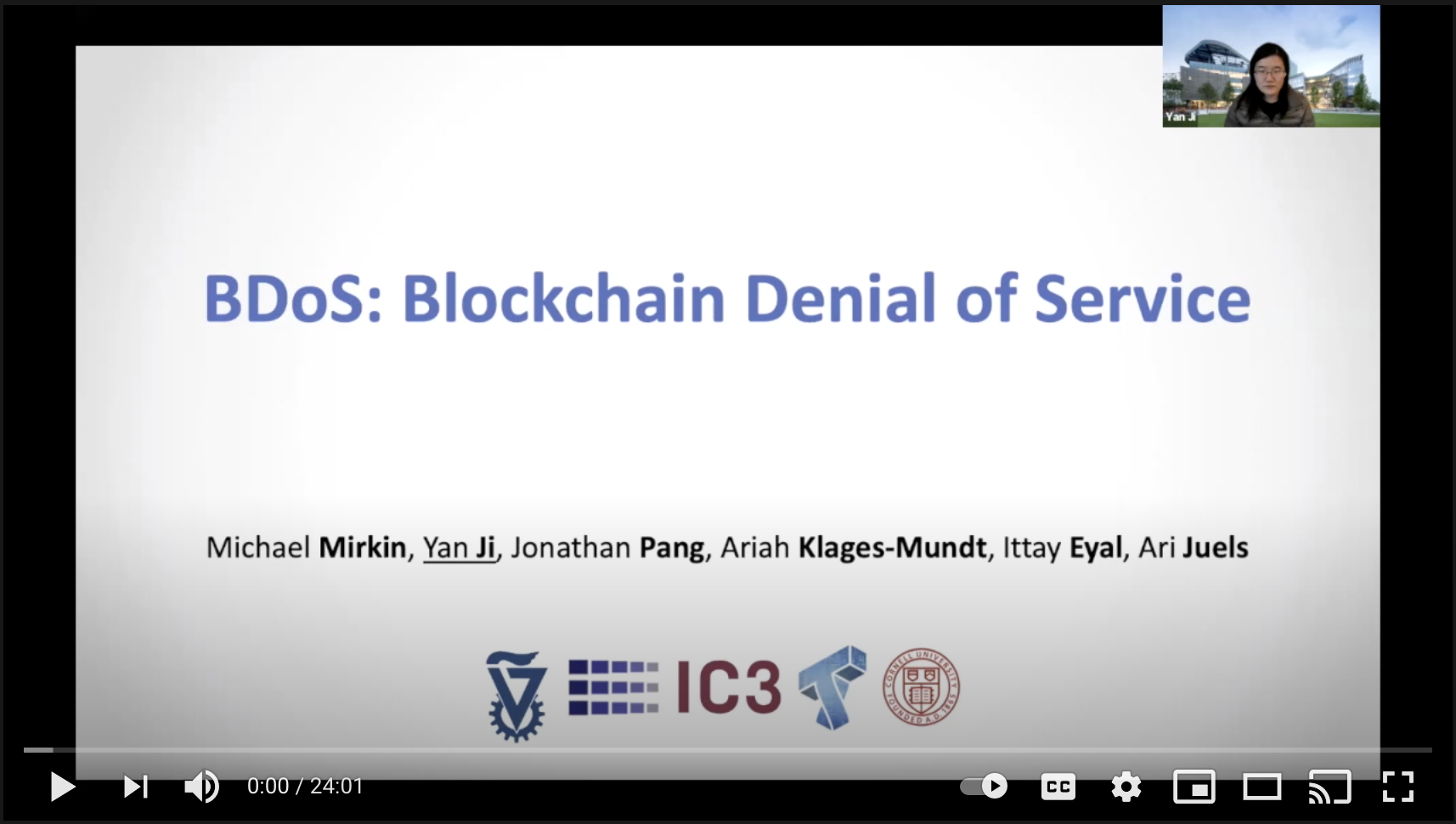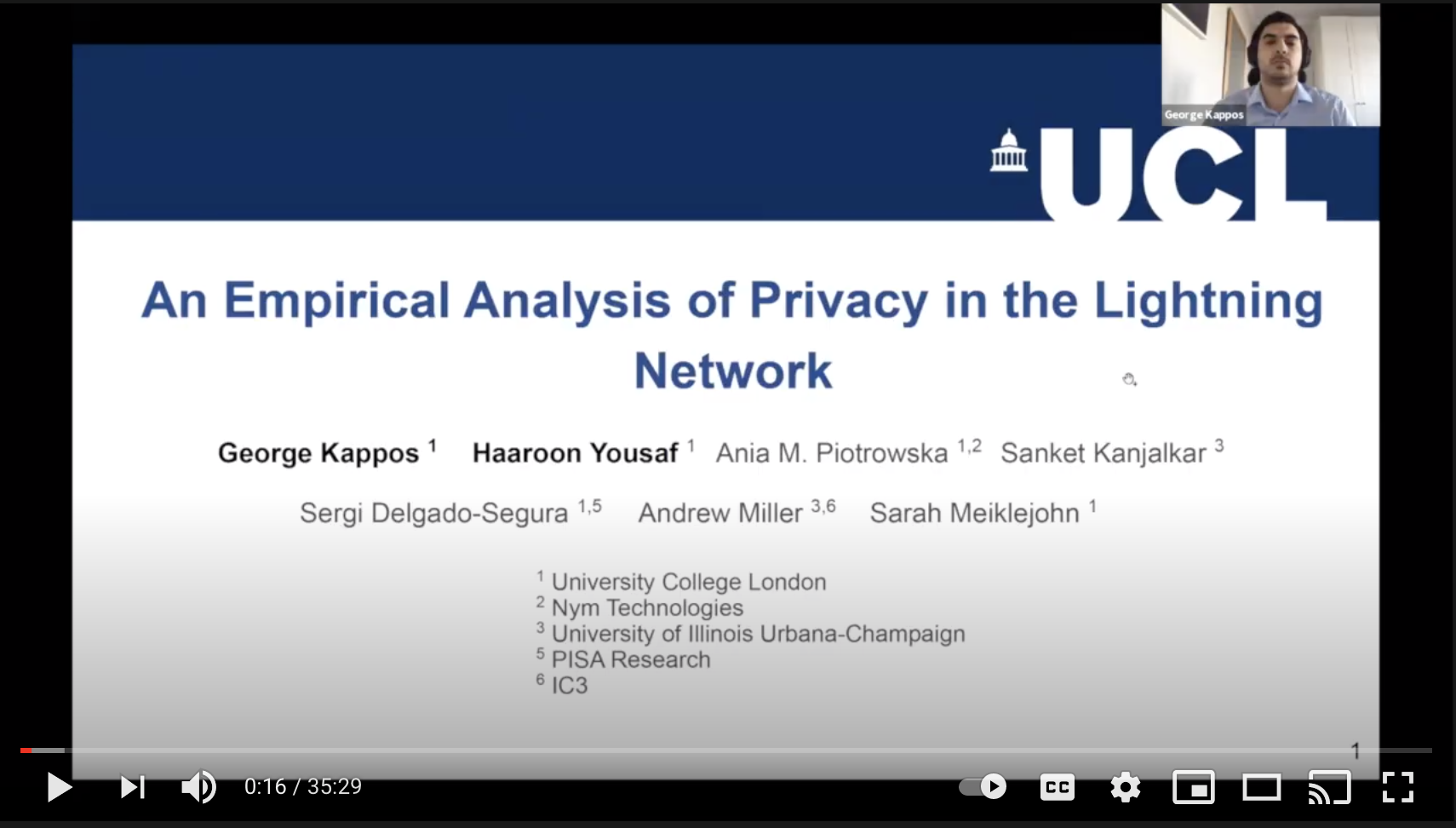
2021 has seen unprecedented interest in Bitcoin and related technologies like the Lightning Network. As these technologies see increases in use, volume, and price, we must consider: how secure and private are they really? Join us for our February webinar to learn about two relevant attacks from IC3 researchers at Cornell and UCL.
Talk 1: "BDoS: Blockchain Denial of Service"
Presented by Yan Ji (Cornell)

Proof-of-work (PoW) cryptocurrency blockchains like Bitcoin secure vast amounts of money. Their operators, called miners, expend resources to generate blocks and receive monetary rewards for their effort. Blockchains are, in principle, attractive targets for Denial-of-Service (DoS) attacks. There is fierce competition among coins, as well as potential gainsfrom short selling. Classical DoS attacks, however, typically target a few servers and cannot scale to systems with many nodes. There have been no successful DoS attacks to date against prominent cryptocurrencies. We present Blockchain DoS (BDoS), the first incentive-based DoS attack that targets PoW cryptocurrencies. Unlike classical DoS, BDoS targets the system's mechanical design; it exploits the reward mechanism to discourage miner participation. Previous DoS attacks against PoW blockchains require an adversary's mining power to match that of all other miners. In contrast, BDoS can cause a blockchain to grind to a halt with significantly fewer resources, e.g., 21 percent as of March 2020 in Bitcoin, according to our empirical study. We find that Bitcoin's vulnerability to BDoS increases rapidly as the mining industry matures and profitability drops. BDoS differs from known attacks like Selfish Mining in its aim not to increase an adversary's revenue, but to disrupt the system. Although it bears some algorithmic similarity to those attacks, it introduces a new adversarial model, goals, algorithm, and game-theoretic analysis. Beyond its direct implications for operational blockchains, BDoS introduces the novel idea that an adversary can manipulate miners' incentives by proving the existence of blocks without actually publishing them.
To see this recorded presentation on YouTube, BDoS: Blockchain Denial of Service.
Talk 2: "An Empirical Analysis of Privacy in the Lightning Network"
Presented by George Kappos (UCL) and Haaroon Yousaf (UCL)

Payment channel networks, and the Lightning Network in particular, seem to offer a solution to the lack of scalability and privacy offered by Bitcoin and other blockchain-based cryptocurrencies. Previous research has focused on the scalability, availability, and crypto-economics of the Lightning Network, but relatively little attention has been paid to exploring the level of privacy it achieves in practice. This paper presents a thorough analysis of the privacy offered by the Lightning Network, by presenting several attacks that exploit publicly available information about the network in order to learn information that is designed to be kept secret, such as how many coins a node has available or who the sender and recipient are in a payment routed through the network.
To see this recorded presentation on YouTube, Privacy In the Lightning Network.